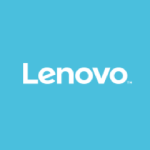The primary use case is mid-tier processing for our hospitals. We have a lot of VM infrastructure on the Unity, but not our most mission-critical. The performance has been great.
The biggest benefit is where it fits in the cost profile. It's for VMs that, again, aren't mission-critical but do need some performance. It fits really well there for that. We get exactly what we want from it, what we expected.
The replication is big for us.
We use file services on Unity and it has a really nice file services interface.
It's also easy to manage. It's really easy in terms of provisioning, replication. There are no real tricks to it. It's just easy.
The biggest one for us, and the reason we don't use it more, is that we can't throttle the replication speed. If it's on, it's on. So we have to be a little more WAN-sensitive, in some applications, which means we can't put it everywhere. That's the biggest issue for us, by far.
One to three years.
The stability has been very good. We've had it for a couple years, really like it.
Scalability is also really easy. There are lots of options.
Our experience with technical support depends. That mid-range is probably not the strong suit in terms of Dell EMC support. They don't have the depth of technical experience in that area like they do with some of the other products. But we haven't had any serious issues with it.
This was a VNX replacement. We had an older VNX that was off the depreciation tables and maintenance costs were a little higher, as the equipment aged. We just replaced it, pretty much one-for-one.
When selecting a vendor, a big factor for us is the quality of support.
The initial setup was really straightforward. I've been doing this for a long time so there were no real surprises in terms of the Unity.
The ROI is right where we need it to be. It's a reasonably priced array. It performs a function that we absolutely need, and it definitely fits where we want it to be. We wouldn't use it for everything but, where we use it appropriately, it makes a lot of sense.
This one came down to either Dell EMC or Pure. We had a NetApp as well, but we weren't considering that. Pure doesn't really have the depth of product offering, so this was an easy choice for us.
I would definitely recommend it and have recommended it. We're pretty large, but I think for most companies it probably is the array that's going to work the best, especially for a VM workload. If you don't want to invest in a VMAX, this makes a lot of sense.
It fits that price profile really well. It's an entry-level, all-flash array for us. So stuff that we don't want to go on VMAX or XtremIO, we can put right on the Unity and feel pretty comfortable that it's going to do what we need it to do, as far as performance goes. Unity falls right in, with it being the successor to the VNX line. It works great, has a very simple interface that we're comfortable with, so it's a good product for us.
In terms of the purchasing process, we have a pretty good sized environment, so we work with our dedicated team. They knew that this was going to perform the way we wanted. We had a spot where we needed some VNX replacement and this was the logical choice. It was very easy.
My rating of eight out of ten would get to a ten if it had throttled replication.












